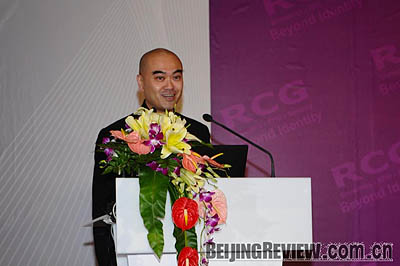| 
HI-TECH SOLUTION: Raymond Chu, Chairman and CEO of RCG Holdings Ltd., believes his company’s cooperation with local medical information software developer Tianjian Tech Group Ltd. will benefit both partners and the Chinese healthcare industry as a whole (COURTESY OF RCG)
New mothers in China can look forward to more peaceful hospital stays without worries that their precious newborns might be swapped or kidnapped from the maternity ward. Some hospitals in China plan to start placing special tags with radio-frequency identification (RFID) technology around the ankles of newborns to let hospital staff track the infants' real-time location and record the identities of every nurse that comes into contact with them.
RCG Holdings Ltd., an international provider of biometric and RFID solutions and services listed on the London Stock Exchange, develops the tags, which are also used in the maternity ward at the Sri Kota Medical Center, a private hospital in Malaysia.
With a primary focus on the Asia-Pacific markets, RCG intends to sell the tags to hospitals on the Chinese mainland through its partnership with the Beijing-based Tianjian Tech Group Ltd., a developer of medical information software and integrator of healthcare solution systems.
Under the partnership, Tianjian Tech Group will focus on healthcare automation-related development, while RCG will provide support for market intelligence and implement projects backed up by its strengths in machine-to-machine (M2M) technology, RFID and biometric applications.
"Our collaboration with Tianjian reflects our commitment to the healthcare industry in China," said Raymond Chu, CEO and Chairman of RCG, at the China Healthcare IT Summit in Beijing on September 23. "We strongly believe that the implementation of biometric, RFID, wireless and M2M technologies will bring enormous benefits to the industry, and as a result of this we are confident that RCG will benefit from this increased demand for IT solutions in the healthcare industry."
RCG showcased its new product offerings at the summit. They included an integrated medical system and individual customized modules, including a hospital information system for managing medical and patient data, a tracking and location system for organizing assets, ambulances and individuals, a mobile clinical assistant system for remote diagnosis, and an identity authentication platform for securing highly sensitive data.
| 